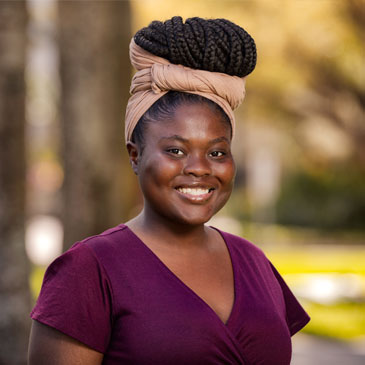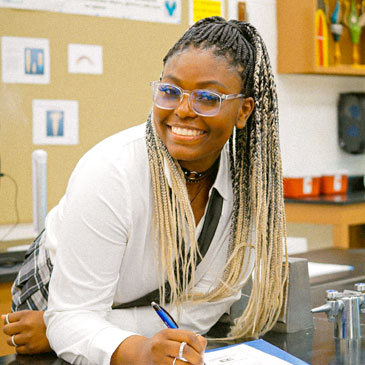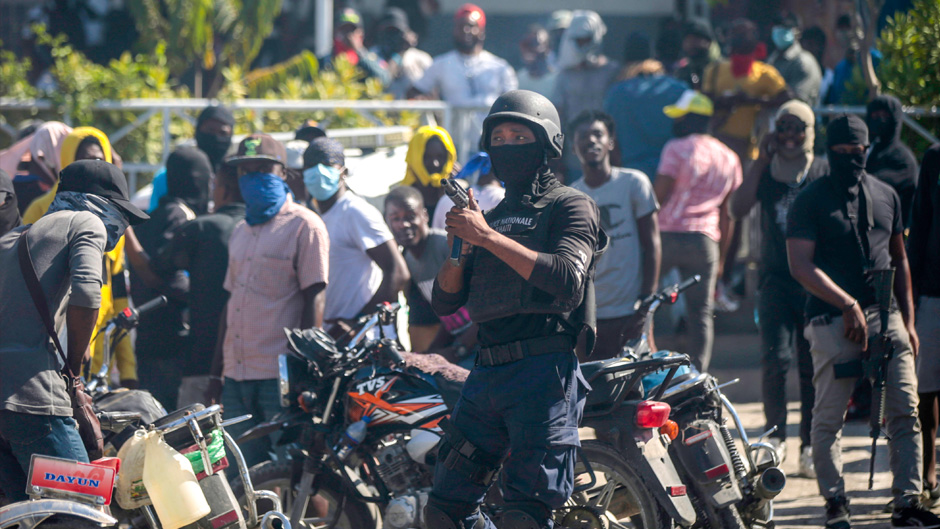Listening to news about the violence and political chaos that is occurring in Haiti only makes Esther Alexandre feel helpless.
Alexandre, a senior who is studying computer engineering at the University of Miami, is co-president of Planet Kreyol, the Haitian student organization that promotes and highlights Haitian culture.

Born in the United States, she was raised by Haitian parents. Relatives on both the maternal and paternal sides of the family reside in Haiti.
“I definitely feel helpless,” she said. “As a Haitian American student with ties in Haiti, you do not know how to help them. If you donate money, you don’t know if the money will get to the individual who needs it or if the organizations are truly channeling it to Haiti. There is so much corruption.”
Since the assassination of Haitian President Jovenel Moise in July 2021, the Caribbean nation—already beset with economic problems—has fallen into a vortex of violence. Gangs control most of Port-au-Prince, the capital; kidnappings are common; and there is no structured government, according to experts. Food and fuel are scarce.
The United Nations has said that because of the gang violence there are major obstructions to the movement of people, food, and humanitarian aid. Gangs also are using killings and rapes to terrorize and subjugate entire communities.
Fortunately, Alexandre’s relatives live outside the capital in the town of Cap Haitien, on the north coast of Haiti. Although food sometimes is scarce and weeks go by without electricity, her relatives are far away from the worst violence.
“My father goes twice a year,” she said. He also “buys toiletries, medicines, and all they may need and sends it via containers.” When Alexandre’s father visits, he flies into the neighboring country of Santo Domingo, which also sits on the island of Hispaniola, and drives to his hometown in Haiti. That way he avoids flying into the capital,” she said. “Most people do not want to fly into the capital.”
Frantzline Gaudard, a junior studying nursing, does not follow news about Haiti closely anymore. She did for a while after Moise’s assassination, she said.

“I don’t follow the news because it is the same over and over again,” she said. “It is the same cycle of violence and financial problems and corruption that are tearing down the country. It is all corruption by greedy politicians.”
She frequently calls her grandmother, Magre Noel, to make sure she is safe in her home in Gonaives, a town 106 miles north of the capital. She noted that her mother and aunt send Noel money for necessities.
“There is not much that the Haitian people could do,” she said. “I make sure that my relatives are okay.”
Anndrina Arne, a senior studying accounting at the Miami Herbert Business School, was born in the United States to Haitian parents. She is also an executive board member of Planet Kreyol.
Her paternal relatives are all in Haiti and many live in Port de Paix, a town in the northwest part of the country. Although most of her relatives are safe, one aunt does live in the capital.
When Arne’s grandmother passed away a few weeks ago, the aunt—who was the deceased’s daughter—could not attend her mother’s funeral. It was too dangerous to drive from Port-au-Prince, according to Arne.

“It is extremely sad, and I cannot imagine how it could be over there,” she said. “There is no government. I know it is bad.”
The United States and members of the international community have discussed sending a specialized force into Haiti to try to stabilize the situation. Most Haitians oppose that idea, saying that in the past such occupations did not go well.
Arne stated that if the Haitians were able to come up with a solution on their own, they would have by now.
“Because of history, Haitians do not trust aid,” Arne said. “If it was only aid and no extra strings attached, it would help.”
